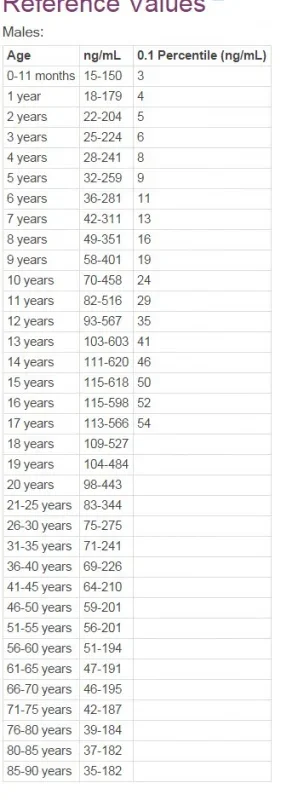I am not a doctor but have some understanding of how sermorelin works. First, IGF-1 should not be the focus to assess response to ghrh like Sermorelin. IGF-1 by itself can provide a good initial evaluation to determine if one might benefit from sermorelin or any GH boosting therapy. If you are going to take Sermorelin or similar peptides, In addition to IGF-1, which we know is not the best number to chase with peptides, you might want to add a 2 or 3 specimen GH test to assess response (and also rule out anti-bodies which would be seen in a lack of response). A 2 or 3 specimen GH test can be performed at Labcorp and requires you to have your blood drawn first thing in the AM fasting. Then, after the first blood draw you will inject your Sermorelin, wait 20 min, then have a second blood draw. Sometimes a 3rd draw can be done 20 min later to show continued rise. This test will show your level of growth hormone before and after taking Sermorelin therefore providing a real accurate showing of your response. Looking at GH response along with IGF-1 provides a better picture when taking peptides. If not taking peptides, GH testing is not worth haing done due to the difficulty in timing the very rapid pulses. Peptide stimulation is needed to show an increase in GH, whereas IGF-1 can provide a fair analysis of GH function in those not taking peptides. Dr Richard Walker's small study showed that the lipolysis and LBM increase occurred when GH was elevated even while IGF was down- showing that what matters is GH increase. Of course IGF-1 plays a role and should be somewhere in a good range, but shifting focus to GH response will serve better than chasing IGF-1.
IGF-1 became the target lab because of the prevalence of rHGH prescriptions for anti-aging. When taking HGH, IGF-1 is released in a bell curve and easy to catch elevated during the day. With Sermorelin (and natural GH function) IGF-1 can fluctuate more.
There is nothing I can back this with, so its completely just discussion, but based upon observation of labs in comparison to both symptoms and physical changes after taking HGH (or similar peptides). Along with some of the ranges that seemed to "float" around amongst multiple HRT doctors, it appears maintaining levels between 200ng-300ng might be considered youthful, and would be reparative- say if using post injury.
Even more confusing, you do not want IGF-1 to sustain at high levels constantly, like when HGH is taken. It is a much better environment to have GH release at the right time, and for IGF-1 to rise and fall at proper intervals. This healthy environment can be maintained for some with releasing peptides but not with HGH, which will over ride the system and create a surge in IGF-1














